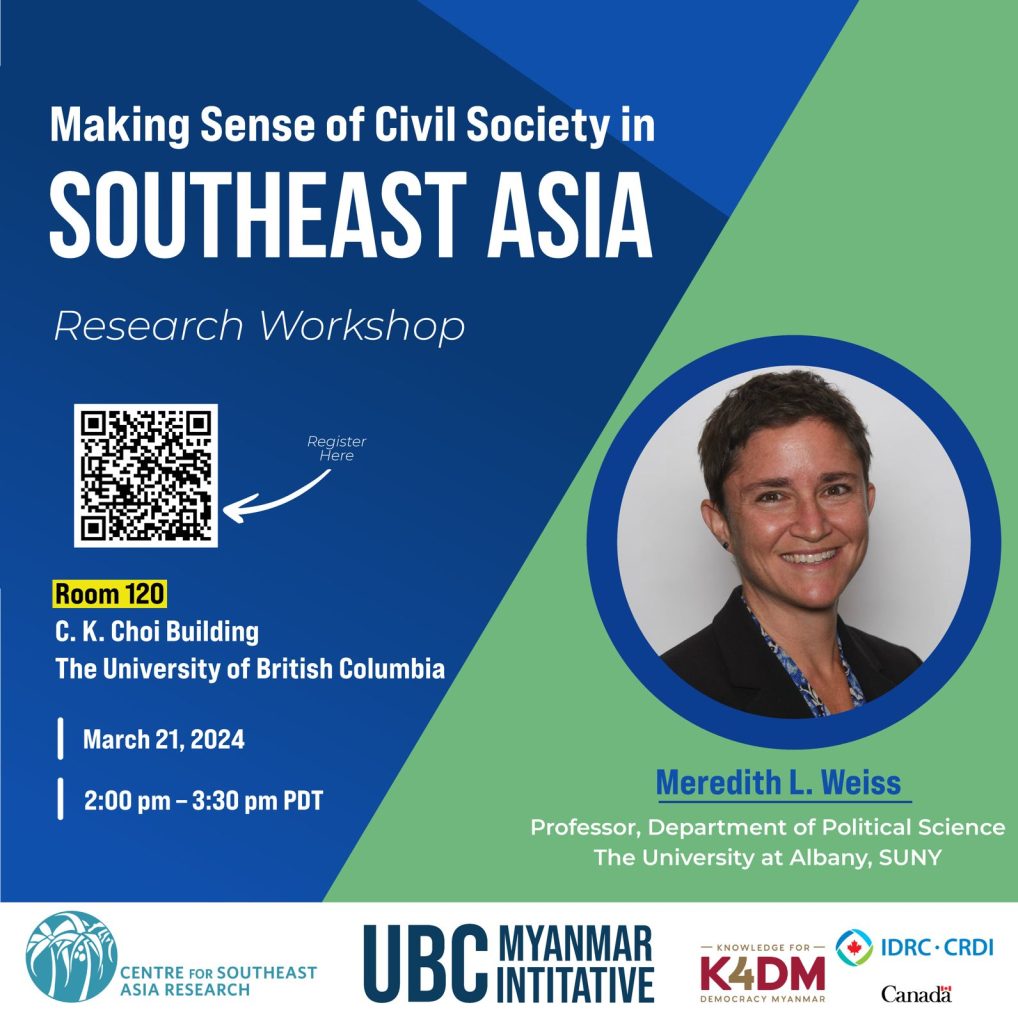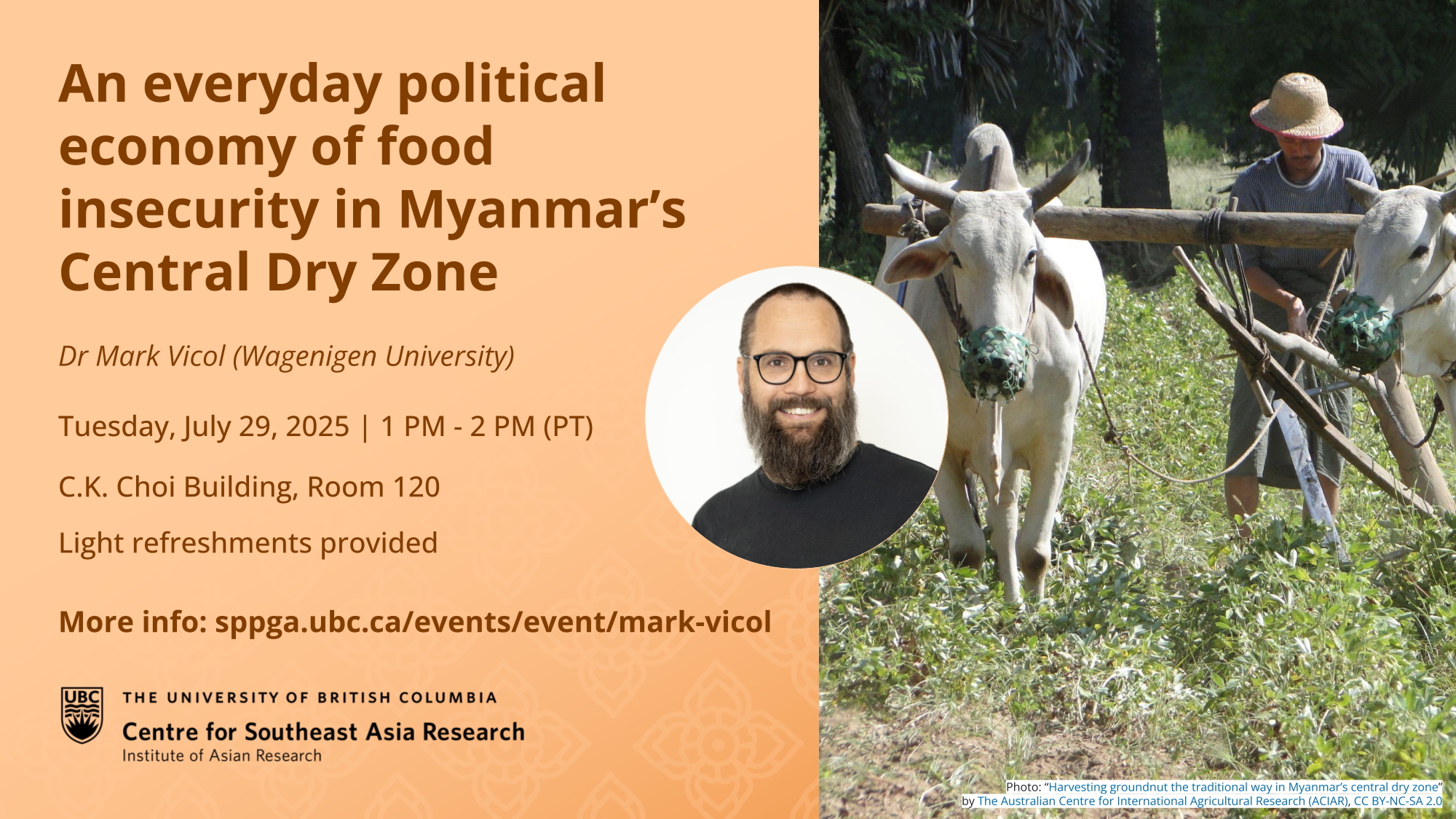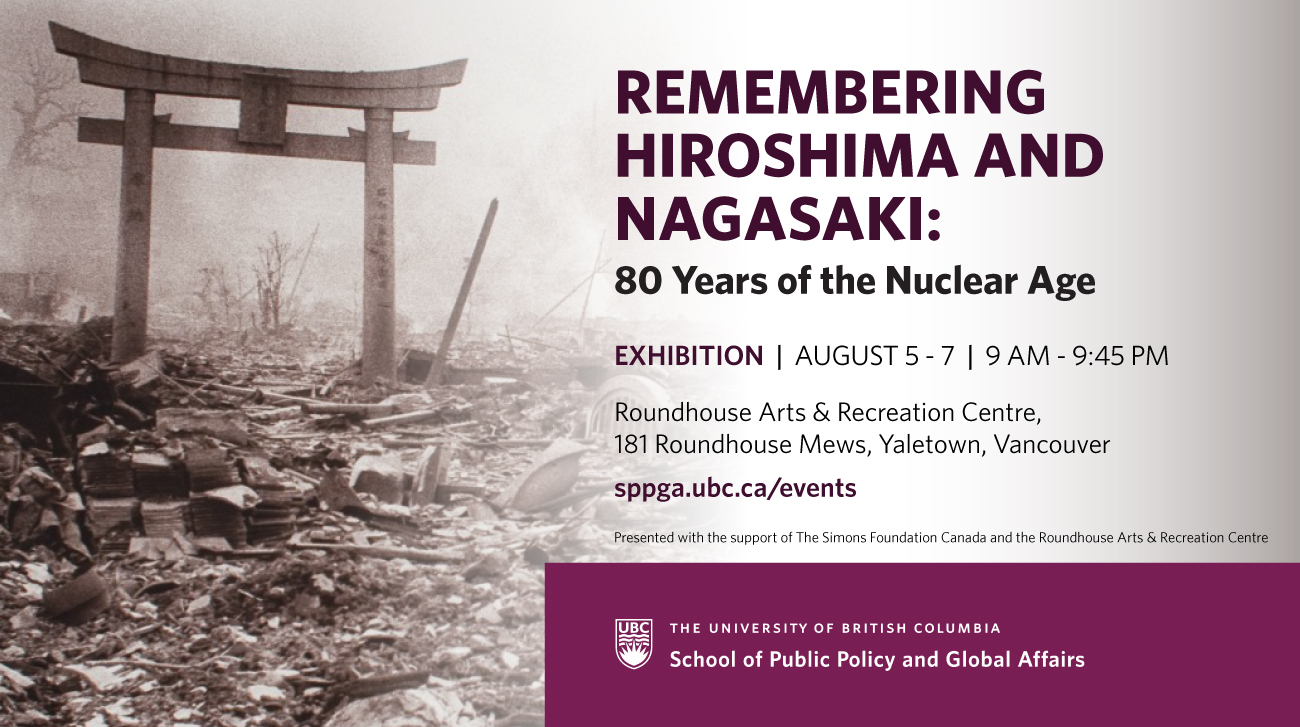The UBC Myanmar Initiative and the Centre for Southeast Asia Research at SPPGA are co-organizing an exciting research workshop focusing on civil society in Southeast Asian countries. This workshop will be facilitated by Professor Meredith L. Weiss from the Department of Political Science, The University at Albany, SUNY.


About the event: As in much of the world in recent years, Southeast Asia has experienced democratic decline or autocratic consolidation across most states in the region. Amid these trends, to what extent, and in what ways, have actors and organizations from civil society acted as firewalls against democratic decline or autocratization in the region? When have fellow civil society organizations (CSOs) instead exerted countervailing, anti-democratic pressure?
We can see civil society as working in any of three directions, depending on prevailing circumstances and opportunities: proactively to promote liberalization, reactively to forestall or slow autocratization, or to advance or accept democratic regression or exclusivism. Civil society organizations may be no more progressive than the state, nor fully autonomous from it, and may be debilitatingly fragmented or polarized. And yet across the region, CSOs still disrupt regimes’ would-be panoptic scrutiny and authority, by presenting alternative spaces and premises for mobilization and voice, through a range of modalities. Even when the balance of CSOs ultimately support the state, their doing so represents the exercise of diagonal accountability which interacts with vertical and horizontal dimensions and may intervene meaningfully, especially when the state is in flux or under strain.
In this research workshop, we will first consider these roles and their implications, then turn to a more interactive discussion about the methods of studying civil (and uncivil) society in Southeast Asia, as a core arena for state surveillance and suppression, but also for popular participation, resistance, and empowerment.

